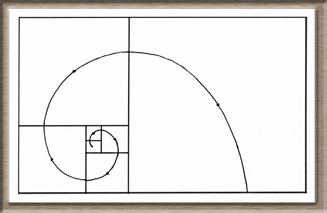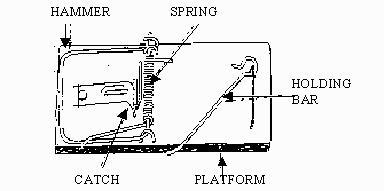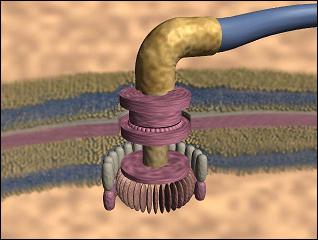DOES GOD EXIST?
By Larry WhiteIntro. Whether God exists is the most fundamental question upon which all the thought of man hinges.
Existential Philosophy: This is the school of thought explaining the human condition, the problem of why we exist. However its first tenet is "There is no God". So without God, anything is possible. (I hope you can hear the irony in that...) A religion of sorts has then grown out of this philosophy.
Humanism: The belief that since there is no God, man is the measure of all things and must create a meaning or definition for himself. Man does not need God to tell him who he is or how to fulfill his destiny. Think: Jean-Luc Picard.
Evolution: A natural explanation of the origin of the biological world without God.These are the thought patterns of many in the world today - but how do we meet their challenge? Can it be proved that God exists?
- Not empirically, i.e. from experience.
- But inferentially, i.e. deductive reasoning from many lines of thought; a valid form of logical proof. For example Models, which are complete world-views that have all the details explained logically to accommodate and provide for what is being explored.
It is not proof that he does exist, per se.
It is proof that he has to exist.There are two forms of proof or argumentation. External to the Bible and Internal to the Bible.
First we will look at the External proofs.I.) Cosmological Argument. (First Cause)
This word is from (kosmoV) cosmos, order, arrangement, universe.
It deals with the problem of what is, as does the philosophy of Metaphysics. We all have to admit that something is. The cosmos is, but how does it happen to be?
Cause and effect.
Every effect must have an adequate or efficient cause.
- Footprints in the sand.
- Two valleys of water, one at a higher elevation than the other. The one at the lower elevation rises 30 feet higher than the upper one and no one can say that one came from the other.3 Forms of the Cosmological Argument.
1. Primal Source: Something does not come from nothing. Something is, therefore something was. You can demonstrate this from the genealogy of Christ back to Adam, (Lk.3 "who is the son of God") Scientist might postulate a primordial slime, but from where did the slime come? If we had a "Big Bang", then from whence came the original singularity? God is the origin of all things.
2. Primal Cause: Every effect must have an adequate cause. If everything has to have a cause, then there logically has to be something in the universe that is the primary cause of everything else which was not caused itself - the uncaused cause of all, God.
3. Primal Mover: A body at rest will remain at rest unless acted upon by an outside force. Everything - is moving, from the atom to the largest super-cluster of galaxies. There must be something that caused the initial movement that did not need to be moved itself. We call it God.This argument is found in the scriptures.
Heb.3:4
For every house is built by someone, but he who built all things is God.Gen.1:1
In the beginning God created the heavens and the earth.II.) Teleological Argument (Design)
This word is from (teloV) telos, the end, purpose or goal, finished, complete, perfect, mature.
The universe shows positive signs of intelligent design and purpose. The challenge goes out for someone to point to something in the universe that is entirely purposeless.
Everything has design.
1. - Eco-systems, and how fragile they are.
2. - Geometrics in nature. Fibonacci's ratio from AD 1202.
Fibonacci was a monk that noticed that rabbits breed in a certain ratio. 1 pair, 2 pair, 3, 5, 8, 13, 21, 34, 55, 89, 144, 233 etc. (The next number being the sum of each succeeding pair). He discovered the ratio .6180 which in mathematics they call the golden mean. The golden mean is the basis for much of architecture and art. A rectangle with .6180 ratio to its sides is a "pleasing rectangle". This is the shape of playing cards, books and magazines.
A man by the name of Hambridge had an idea with geometry and this golden mean ratio. If you take a pleasing rectangle and draw a square at one end, then the remainder is a pleasing rectangle. If you continue to draw squares from the leftover rectangles then you get a pattern like the one below. With Fibonacci's ratio applied to "Hambridge's whirling squares" something amazing happens. Draw a curve in line with the center of all the squares. Don't be too critical, I drew this freehand.
This curve at a .6180 ratio can be found in much of nature.
Spiral galaxies arms
Comet's tails curve this way
Ocean waves have this curve
Nautilus shells and snail shells
Elephant tusks have this curve
Saber tooth tigers teeth
Rams horns
Parrots beaks
Roots of human teeth
Spiral inner ear. the Cochlea
Pine cones and Pineapple scales curve to fit ratio
Daisy petals have 21, 34, 55, or 89 petals
Spiders build their webs to this curve
Musical chords that are "pleasing" have this ratio
3. We can see design in quantum physics. I was watching a PBS program on the hunt for the smallest particle and the physicists that were interviewed said that if their model of the design of the atom or particle does not have a pleasing symmetry then it is most likely wrong.
4. We see incredible design in the human body. The study of the eye's design is truly humbling. While the evolutionists say it all happened by blind chance.
5. There is an argument in recent years that is called Irreducible Complexity that is proving strong. We see it most obviously in the structure of living cells. To illustrate: Take the simple mouse trap. Could it just happen to form by accident with all its five component parts working together to catch a mouse? The absence of any one of these components will prevent the trap from functioning.
All the component parts had to be assembled at once to provide the function needed for the device. Why would anyone even try to assemble this device without the spring?
We see the same thing in biology not only at the macro level of the human body, as in the function of the eye, but also at the molecular level in cells.
The bacterial flagellum is a cellular outboard motor that bears the marks of intelligent design. Taken from http://www.arn.org/docs/mm/motor.htm. There are about 200 distinct proteins that have to assemble in one event in order to have the function of mobility for a cell. If any one of these components is missing the cell cannot function.
Evolution cannot account for this plan. They have to show how all the components came together by accident to produce this function. But never let the evolutionist forget this one amazing fact: It does serve a function. Function has meaning in a plan and plans only come from a conscious mind. Mind had to be the designer of this complex bio-machine that serves a function."If it could be demonstrated that any complex organ existed which could not possibly have been formed by numerous, successive, slight modifications, my theory would absolutely break down."
--Charles Darwin, Origin of SpeciesThe universe has the earmark of intelligent design and purpose stamped all over it. Without this design, we could not have science. Listen to Albert Einstein,
"With the help of physical theories we try to find our way through the maze of observed facts, to order and understand the world of our sense impressions. We want the observed facts to follow logically from our concept of reality. Without the belief that it is possible to grasp the reality with our theoretical constructions, without the belief in the inner harmony of our world, there could be no science. This belief is and always will remain the fundamental motive for all scientific creation. Throughout all our efforts, in every dramatic struggle between old and new views, we recognize the eternal longing for understanding, the ever-firm belief in the harmony of our world, continually strengthened by the increasing obstacles to comprehension." [Albert Einstein, The Evolution of Physics, 1938. Simon and Schuster]
But design argues for a designer. We call him God.
Psa.19:1
The heavens declare the glory of God;
And the firmament [sky] shows his handiwork.104:24
O Jehovah, how manifold are your works!
In wisdom you have made them all.
The earth is full of your possessions--
Isa.45:18
For thus says Jehovah,
Who created the heavens,
Who is God,
Who formed the earth and made it,
Who has established it,
Who did not create it in vain,
Who formed it to be inhabited:
"I am Jehovah, and there is no other.
Rom.1:20
For since the creation of the world his invisible qualities, are clearly perceived, being comprehended by the things that are made, even his eternal power and divinity, so that they are without excuse.III.) Ontological Argument
This word comes from ontoV ontos, to be, existence.
The argument that existence must correspond to whatever all men can conceive of being.Acts 17:24-28
God, who made the world and everything in it, since he is Lord of heaven and earth, does not dwell in temples made with hands. Nor is he worshiped with men’s hands, as though he needed anything, since he gives to all life, breath, and all things. And he has made from one blood every nation of men to dwell on all the face of the earth, and has determined their preappointed times and the boundaries of their dwellings, so that they should seek the Lord, in the hope that they might grope for him and find him, though he is not far from each one of us; for in him we live and move and have our being, as also some of your own poets have said, “For we are also his offspring.’Man seeks for God and feels after him and finds him. The fact of a universal longing for God must be admitted. All civilizations without exception, have practiced some sort of religion and worship some sort of higher being. If we just crawled out of the primordial slime, then where did this longing for and ideal of the divine originate?
Paul says that God made man on the earth so that he might seek him out. Man's knowledge comes from three main sources, viz. observation, experience and divine revelation. Where did man's idea of God come from if there is no God? Where did he originate the idea of "infinite" if all he is, is a finite animal?
Thirst calls for water.
Hunger calls for food.
Reproductive drives call for heterosexual marriage.
The need to worship calls for God.
Questions call for answers.
The primary answer to the primary question is - "God".IV.) Moral Argument
Man has a moral nature, a sense of "oughtness" or duty. We all do not agree about what is right or wrong, but we all agree that a right and wrong exist. Even if some deny that right and wrong exist, they cannot behave or live in any other way.
In man there is definitely a thirst for righteousness. We cry for what is fair, what is equitable, we love justice. The atheist must show how a personal, moral, intelligent being like man came out of an impersonal, non-moral, unintelligent mass of physiochemical reactions. "If you begin with an impersonal, no matter how you phrase that impersonal, there is no meaning for morals." [Francis A. Schaeffer]
But if man is moral and everything with which he deals is either right or wrong, then there must be an ideal from which all moral judgements stem. Man must work from an ideal in order to appeal to what is "right". But a moral ideal cannot exist anywhere and anyhow but in a mind; an absolute moral ideal can exist only in a mind that is absolute, a mind from which all reality is derived - that is what we call God. He is the final appeal, the highest moral court.Now let us look briefly at Internal proofs.
I.) First of all his own claims.
A. Self-awareness
Ex.3:13-14
Then Moses said to God, "Indeed, when I come to the children of Israel and say to them, "The God of your fathers has sent me to you,' and they say to me, "What is his name?' what shall I say to them?"
And God said to Moses, "I AM THAT I AM." And he said, "Thus you shall say to the children of Israel, "I AM has sent me to you."'"I am that I am" - the idea expressed is that of real, perfect, unconditioned, independent existence.
Rev.1:8
“I am the Alpha and the Omega, the Beginning and the End,” says the Lord, “who is and who was and who is to come, the Almighty.”Self existent, eternal, all powerful.
Isa.44:6
"Thus says Jehovah, the King of Israel,
And his Redeemer, Jehovah of hosts:
"I am the first and I am the last;
Besides me, there is no God.A and W, the A and the Z. The point in logical reasoning to which a man can in his thinking of beginnings grasp and beyond which he cannot conceive, and the point in his thinking of endings which he can grasp beyond which he cannot conceive. God is there at both ends. The same is true of our grasp of time, he is the beginning and the end, the first and the last. Or even our grasp of power and energy, he is "o pantokratwr" o pantocrator, the ALL powerful.
If there is a God then logic would require an adequate God. Jehovah fits every expectation of man - transcendent, all knowing, all powerful, omnipresent creator - not only of the world but of time and space. There is not any other god ever worshipped in human history who claims the same distinction. There is not any other thing worshipped by man which was big enough, that could step outside our abilities and thinking and show us that he was already there.B. Prophecy
Not just any particular prophecy but the subject of prophecy. Jehovah is the only God who could tell the future. He was already there and could see it.Isa.41:21-29
21 "Present your case," says Jehovah.
"Bring forth your strong reasons," says the King of Jacob.
22 "Let them bring forth and show us what will happen;
Let them show the former things, what they were,
That we may consider them,
And know the latter end of them;
Or declare to us things to come.
23 Show the things that are to come hereafter,
That we may know that you are gods;
Yes, do good or do evil,
That we may be dismayed and see it together.
24 Indeed you are nothing,
And your work is nothing;
He who chooses you is an abomination.25 "I have raised up one from the north,
And he shall come;
From the rising of the sun he shall call on my name;
And he shall come against princes as though mortar,
As the potter treads clay.
26 Who has declared from the beginning, that we may know?
And former times, that we may say, "He is righteous'?
Surely there is no one who shows,
Surely there is no one who declares,
Surely there is no one who hears your words.
27 The first time I said to Zion,
"Look, there they are!'
And I will give to Jerusalem one who brings good tidings.
28 For I looked, and there was no man;
I looked among them, but there was no counselor,
Who, when I asked of them, could answer a word.
29 Indeed they are all worthless;
Their works are nothing;
Their molded images are wind and confusion.42:8-9
8 I am Jehovah, that is my name;
And my glory I will not give to another,
Nor my praise to carved images.
9 Behold, the former things have come to pass,
And new things I declare;
Before they spring forth I tell you of them."Conclusion:
Does God exist? Absolutely!
I hope this lesson will help you to help other honest people whom you meet, who are asking the questions.
(Originally delivered as a sermon in Eagle Point, OR. November 25, 1984)
LW


